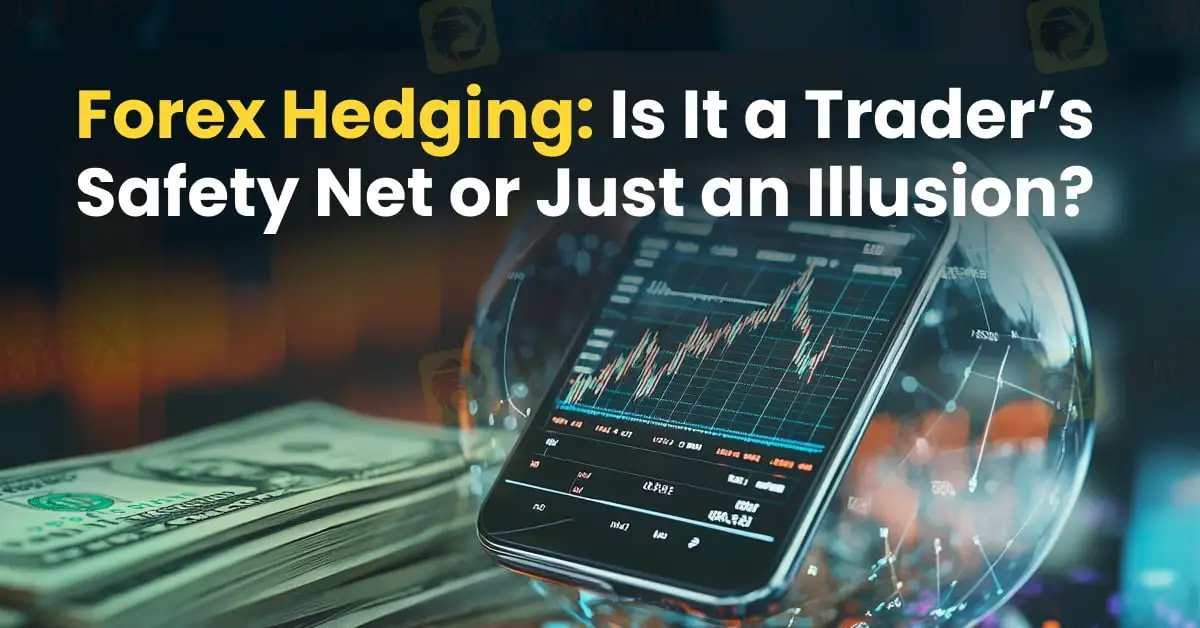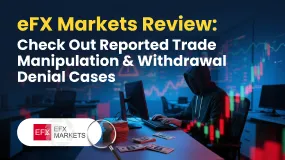Abstract:In the volatile world of forex trading, risk is inevitable. One widely used strategy is forex hedging, which is a useful technique designed not to eliminate risk entirely, but to reduce its potential impact. As global economic uncertainty persists, understanding how hedging works could be an essential addition to a trader’s toolkit.

In the unforgiving world of forex trading, one brutal truth looms large: the market does not care about your predictions. A single unexpected headline, an unanticipated rate decision, or a sudden currency shock can wipe out days of gains in moments. Many traders freeze. Others panic. But the more experienced ones? They do not just react, but they prepare. One of the most powerful defences they rely on is hedging.

Forex hedging is a strategy used to protect a traders existing position from unfavourable movements in currency prices. It is a form of risk management, not a tool for profit generation. By opening a secondary position that moves in the opposite direction of the primary trade, a trader seeks to limit potential losses if the market turns against them.
In essence, hedging provides a cushion. It allows traders to stay in a trade while reducing their exposure to short-term volatility, preserving capital in uncertain or reactive market conditions.

There are two primary ways to hedge in the forex market: direct hedging and correlation-based hedging.
A direct hedge involves opening an opposing position on the same currency pair. For instance, if a trader is long on EUR/USD but expects short-term dollar strength, they might open a short position on the same pair to offset potential downside. While gains on one position are reduced by losses on the other, the account is protected from sharp price swings.
The second method involves using correlated currency pairs. Some currency pairs tend to move in tandem or in opposite directions. For example, EUR/USD and GBP/USD often show positive correlation due to their shared quote against the US dollar. A trader might go long on EUR/USD and short on GBP/USD to hedge against unexpected dollar strength while betting on euro outperformance relative to sterling.


The primary benefit of hedging is control. It allows traders to manage exposure and maintain open positions without needing to close them prematurely during volatile periods. Hedging can also be used to lock in profits when a trade has moved in the desired direction but uncertainty looms on the horizon.
This strategy is particularly useful during major economic announcements, elections, or geopolitical events that can cause sharp, unpredictable price action.
Hedging is not without its challenges. Opening multiple positions typically leads to increased trading costs, including spreads and commissions. Additionally, correlations between currency pairs can break down unexpectedly, reducing the effectiveness of cross-pair hedges.
There is also the psychological aspect to consider. Hedging can create the illusion of safety, encouraging overtrading or poor decision-making. In some cases, brokers restrict or prohibit direct hedging strategies depending on regulatory jurisdiction.
Finally, hedging reduces potential profits by offsetting gains with partial losses. It is a method of protection, not a profit maximiser.
Examples of Hedgeable Currency Pairs
● EUR/USD and GBP/USD: These pairs are often positively correlated, making them suitable for comparative hedging strategies.
● USD/CHF and EUR/USD: These frequently show inverse movement, useful for traders looking to hedge against dollar volatility.
● AUD/USD and NZD/USD: Given their close economic ties and similar commodity exposure, these pairs can be used to hedge regional positions in the Asia-Pacific zone.
Whether you choose to hedge or take a more directional approach, trading without a plan is gambling. Hedging is not a silver bullet, but a strategy that must be backed by sound judgement, discipline, and a clear understanding of risk.
In forex trading, the most successful traders are not always those with the highest returns, but those who know how to protect their capital when the storm hits. Whatever your strategy, always trade with a plan, manage your exposure carefully, and treat risk management as your number one priority.














